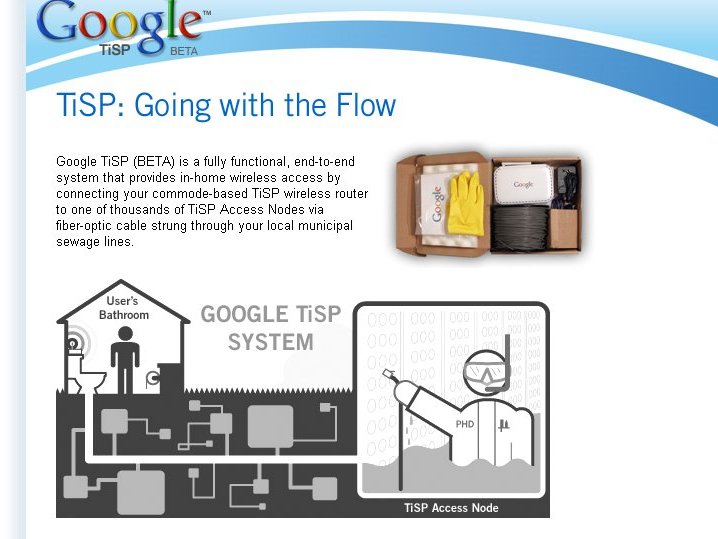10 best Google April Fool's jokes
The best of Google's japes from the last decade

Google is well known for its April Fool's Day "product launches". But many of them are amazingly complicated, with multiple pages, FAQs and complex screen grabs. These aren't just hastily prepared jokes that were thought of the day before like the weak attempts by numerous other firms.
So we've listed our 10 favourite April Fool's day Google faux-launches. Gmail isn't here – despite it seeming like a hoax at the time and being launched on 1 April, that's proved to be no joke. Though we bet someone at Google was enjoying one at the time.
1. Google MentalPlex
After two years of existence, Google decided it was time to have a play with what we'd believe it could do. MentalPlex involved a standard Google search page, complete with a spinning, eye-popping circle that you were meant to peer into to read your mind and determine what you are searching for. A vision of the future? Google even published a full fake FAQ on MentalPlex, too. To be fair though, all the search results were April Fool-related.
2. Google GBall
From Google Australia this year, the Gball page is probably even more amusing than CADIE (see below). "This weekend around the country, the gBall(BETA) will change Australian rules football as we know it." The ball can be found by Google technology when it's lost as well as perform other handy Aussie Rules functions: "gBall vibrates if player agents or talent scouts want to speak to you…find your lost gBall online using Google Maps."
3. The PageRank reveal
Sign up for breaking news, reviews, opinion, top tech deals, and more.
A particular favourite of the TechRadar team. After continuing speculation about its PageRank technology, Google decided it would tell us all what was going on. PigeonRank was the result.
"By collecting flocks of pigeons in dense clusters, Google is able to process search queries at speeds superior to traditional search engines, which typically rely on birds of prey, brooding hens or slow-moving waterfowl to do their relevance rankings."
"When a search query is submitted to Google, it is routed to a data coop where monitors flash result pages at blazing speeds. When a relevant result is observed by one of the pigeons in the cluster, it strikes a rubber-coated steel bar with its beak, which assigns the page a PigeonRank value of one. For each peck, the PigeonRank increases. Those pages receiving the most pecks, are returned at the top of the user's results page with the other results displayed in pecking order." Top marks for ingenuity, at least.
4. Google Gulp
The idea behind this fake 2005 beverage was a rip-off of the concept behind the original Gmail – that you had to be 'invited' to get it by somebody who'd already bought it. "You can pick up your own supply of this 'limited release' product simply by turning in a used Gulp Cap at your local grocery store.
"How to get a Gulp Cap? Well, if you know someone who's already been "gulped," they can give you one. And if you don't know anyone who can give you one, don't worry – that just means you aren't cool. But very, very (very!) soon, you will be." Naturally it was a beta…
5. Google TiSP
Possibly the most ridiculous Google fool, though PigeonRank was pretty close. Google's Toilet Internet Service Provider was intended to take advantage of sewage piping to bring 8Mbps broadband to your toilet "vacuum-sealed to prevent water damage". The user would simply drop a cable down the toilet, then flush it. "Mac and Linux support coming soon." The how it works page about 'Going with the flow' is also worth a read.
6. Gmail Paper
Google changed the log-in page for Gmail for this one. "Everyone loves Gmail," read the blurb on the page. "But not everyone loves email, or the digital era. What ever happened to stamps, filing cabinets, and the mailman? Well, you asked for it, and it's here. We're bringing it back."
Dan (Twitter, Google+) is TechRadar's Former Deputy Editor and is now in charge at our sister site T3.com. Covering all things computing, internet and mobile he's a seasoned regular at major tech shows such as CES, IFA and Mobile World Congress. Dan has also been a tech expert for many outlets including BBC Radio 4, 5Live and the World Service, The Sun and ITV News.